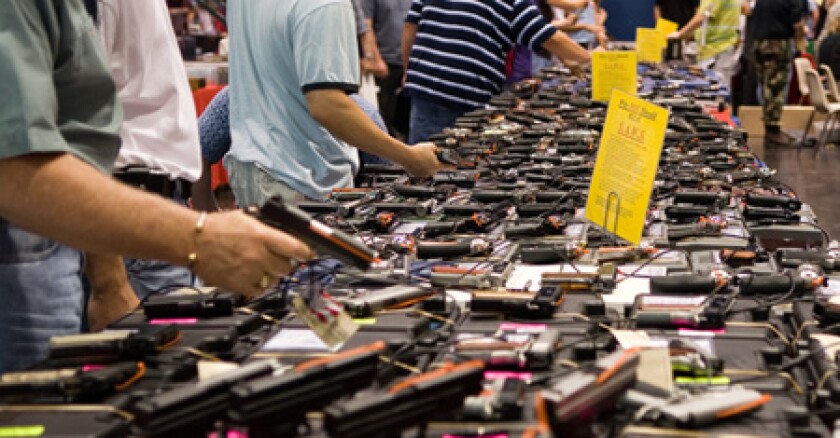Under the Gun Control Act of 1968, federal law clearly defined private sellers as anyone who sold no more than four firearms per year. But the 1986 Firearm Owners Protection Act lifted that restriction and loosely defined private sellers as people who do not rely on gun sales as the principal way of obtaining their livelihood.
Some states have opted to go further than federal law by requiring background checks at gun shows for any gun transaction, federal license or not. The majority of these such states require background checks at the point of transfer for all firearms. Alternatively, Hawaii, Illinois, Iowa, Massachusetts, Michigan, Nebraska, New Jersey and North Carolina regulate purchases by prohibiting private dealers from selling to individuals who do not have licenses/permits, which they obtain following background checks. Some states' requirements are limited only to handgun purchases.
Even in states that do not require background checks of private vendors, the venue hosting the event may require it as a matter of policy. In other cases, private vendors may opt to have a third-party licensed dealer run a background check even though it may not be required by law.
Last Updated: January 2016









